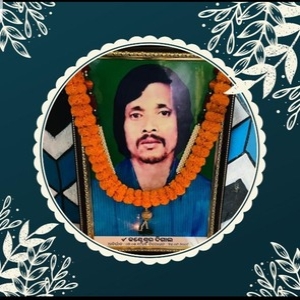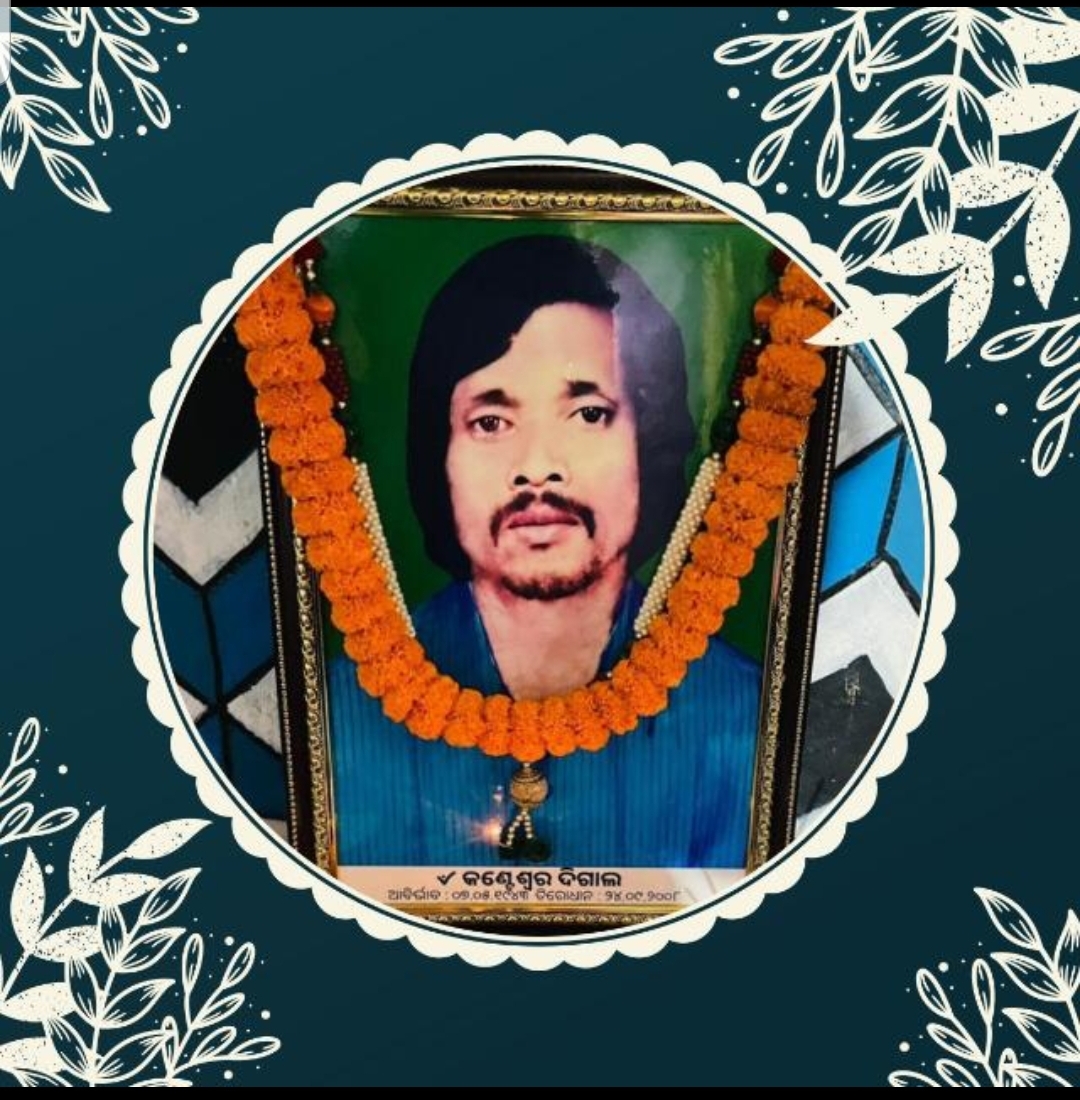
.jpg) Purushottam Nayak and Dibakar Paricha
Purushottam Nayak and Dibakar Paricha

Late Kantheswar Digal fearlessly witnessed his Catholic faith in the face of anti-Christian violence, brutal persecution and death in Kandhamal. His life serves as a beacon of inspiration, reminding us of the strength and resilience in his unwavering commitment to God.
He was a devout Roman Catholic who was born on January 1, 1955 in the hamlet of Bujulimendi, Tikabali block of Kandhamal district in Odisha. He belonged to St. Thomas the Apostle Parish, Sankarakhole, under the Archdiocese of Cuttack-Bhubaneswar. He was murdered by fundamentalists on September 25, 2008.
He left behind two brothers, Thakur Digal and Suana Digal, as well as two sisters, Champi Digal and Munuri Digal. Rajendra and Bibina are his son and daughter from his marriage to Korfulo Digal.
Kantheswar typically grew up in a family environment that nurtured and instilled strong Catholic faith in him. He received religious education from his parents, participated in the sacraments, and actively engaged in the life of the local parish community.
He lost his father when he was 22 years and was left to shoulder the responsibilities of the family. He utilized his meagre earnings to support his mother, who lost her spouse and other family members. In the year 1976, Kantheswar tied the nuptial knot with Korfulo. He was an affectionate father and husband who did everything to ensure the well-being of his family. They were pious devotees who seldom missed the Sunday service as well as took part in multiple religious rituals. On the small portion of land which he owned, he cultivated turmeric and reared a couple of cattle, goats, and chicken to boost his family's earnings. He started an affordable business selling hens, goats, and cows.
His early life as a village catechist embodied a deep love for God and a desire to share the Catholic faith with others. His formation, faith, and commitment to serving the Christian community would have shaped them into individuals willing to sacrifice their lives for the sake of faith. His martyrdom serves as a powerful example of steadfastness and courage in the face of persecution, inspiring future generations of Christians to stand firm in faith.
Village catechists serve in rural areas, particularly in remote villages. He played a crucial role in evangelisation and pastoral care within the community.
As a responsible catechist, Kantheswar provided religious instruction, basic principles and doctrines of the Catholic faith to members of the community and non-Christians. He used to conduct catechism classes, Bible studies, and prayer sessions, aiming to deepen the faith and understanding of the people he served. He led community prayers, organized Masses, and ensured the smooth functioning of religious rituals and sacraments.
He tirelessly provided pastoral care and support to individuals and families in their villages. He used to visit the sick, offer spiritual guidance, and counsel those in need. He also played a vital role in preparing individuals for the reception of sacraments such as Baptism, First Communion, and Confirmation.
Community building was his main motto, as catechists foster a sense of community and unity among the faithful. He also promoted social justice, charity, and solidarity among the members of his village.
He had evangelizing and outreach as his goals. He reached out to individuals who have not yet accepted Christianity. He used to visit people in their homes, spread the gospel message, and converse with people from other religious backgrounds.
He extended his hand-holding support, collaboration with church authorities and worked closely with priests, religious leaders, and local church authorities. He received guidance, training, and support from the Church to enhance their knowledge and skills in catechesis and pastoral work.
He served as vital conduit of faith and source of spiritual guidance within their communities. Their commitment and dedication contributed to the growth and vibrancy of the Catholic Church, particularly in areas where access to priests and formal religious instruction may be limited.
He would go to far-flung locations to preach the gospel. He was a teacher of adult education as well. He was paid a remuneration of Rs. 200 per month. When the parish priest didn't have time, he would assist with cooking. He was always prepared to offer assistance to people who required it.
His family was poor, so they were constantly stressed about money. Despite his desire to continue studies, he was forced to discontinue them. He would read as many books as he could borrow from various sources to quench his thirst for knowledge
Hindu extremists in the locality incited the mob with the slogan "let us completely eliminate Christians from the region." Many believers in Christianity were forced to denounce what they believed. The rioters began gathering in many places and threatened to kill Christians unless they signed written agreements swearing to Hinduism.
Kantheswar was there when the mob gathered, but he firmly adhered to Christianity. This increased the protesters’ wrath. As many as 100 to 150 rioters stormed his house-cum-shop and set it on fire, completely destroying it. The extremists warned him not to leave the premises unless a further order was given to him.
On September 23, 2008, the rioters caught hold of Kantheswar at Odabadi Sagar Surath. He was held captive in a cattle shed for a day. Then they took him to a playground at Dakalpanga and tortured. But, nothing deterred him from his faith. He said he knew only one true God, his redeemer and saviour, the Lord Jesus Christ. After forcing him to eat rice stained with blood, he was strangled to death. The rioters threw his body into Bisipoda river and it got entangled in a rock. After a week, the family members pulled out the decomposed body from the river.
Korfulo Digal says: My husband was a just and honest person. He had a good relationship with neighbours. He always helped the needy. I still want to know why the rioters killed my husband. I accept the reality and pray to the Lord that his soul may remain in peace with the Lord who died for him.
His son Rajendra says: In his life, my father always kept God first. He taught us about God. He taught us how to pray. He took care of us all physically and spiritually. He was a loving father.
At St. Thomas the Apostle church, the parishioners pray to God on behalf of the victims of anti-Christian violence in 2008. Kantheswar is remembered in the parish every day.
Kantheswar’s unwavering commitment to God, courage in the face of persecution, and his ultimate sacrifice have left an indelible impact on the Catholic Church and the world at large. As we reflect on his life, may others be inspired to live their faith boldly, imitating his example of love, courage, and selflessness.
The story of Kantheswar does not end with his earthly life; his legacy lives on. His courage and sacrifice should inspire others to stand firm in their faith in the face of adversity, and to strive for a world rooted in love, compassion, and justice.